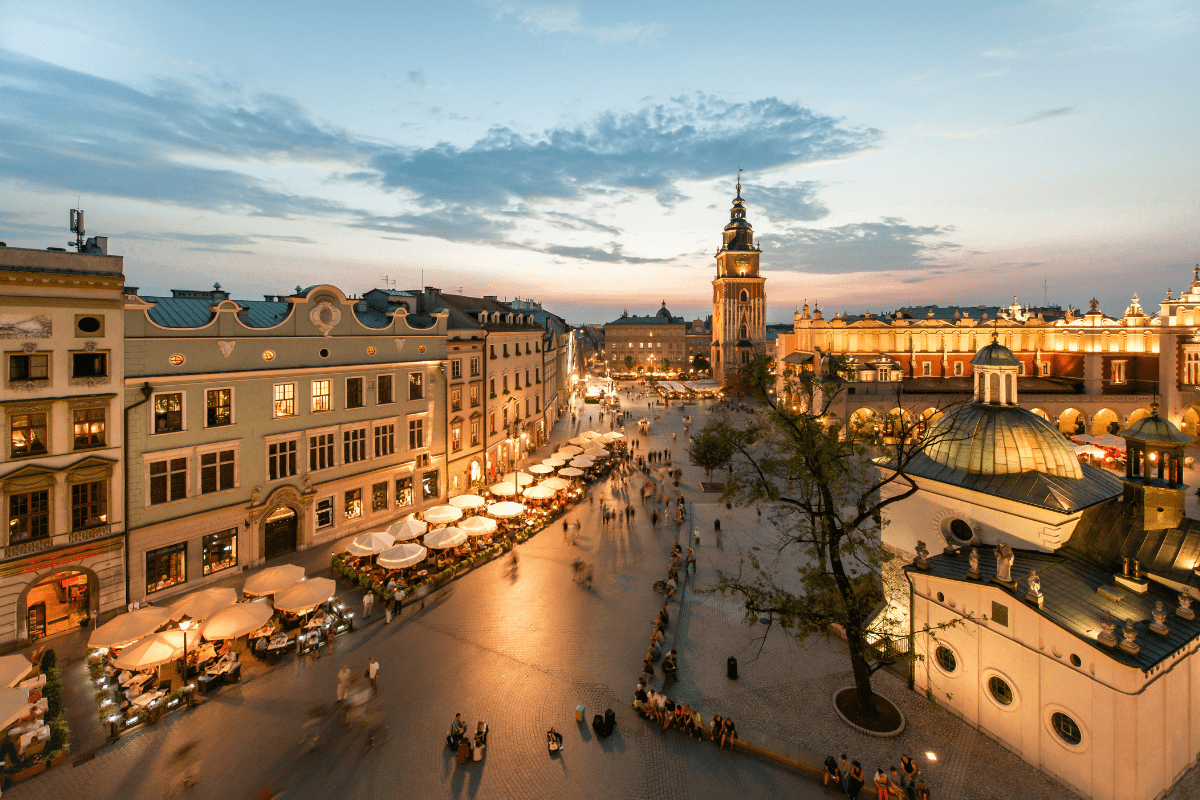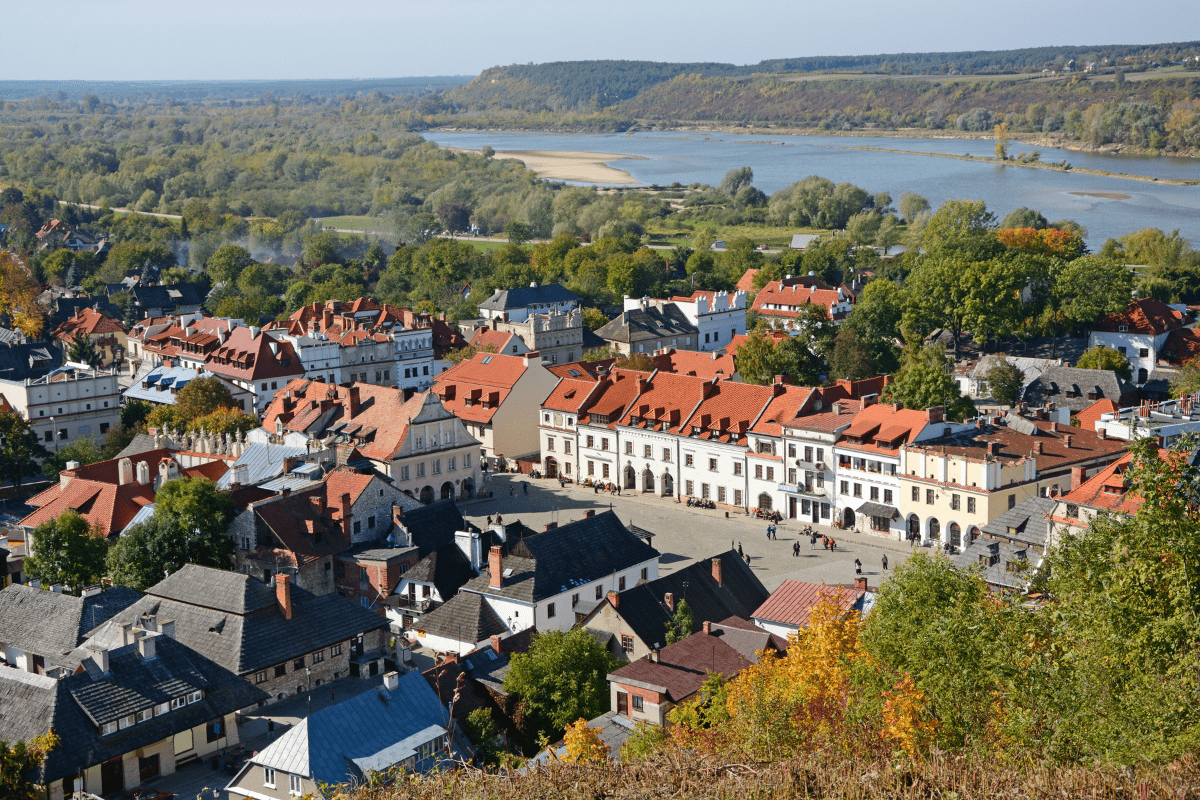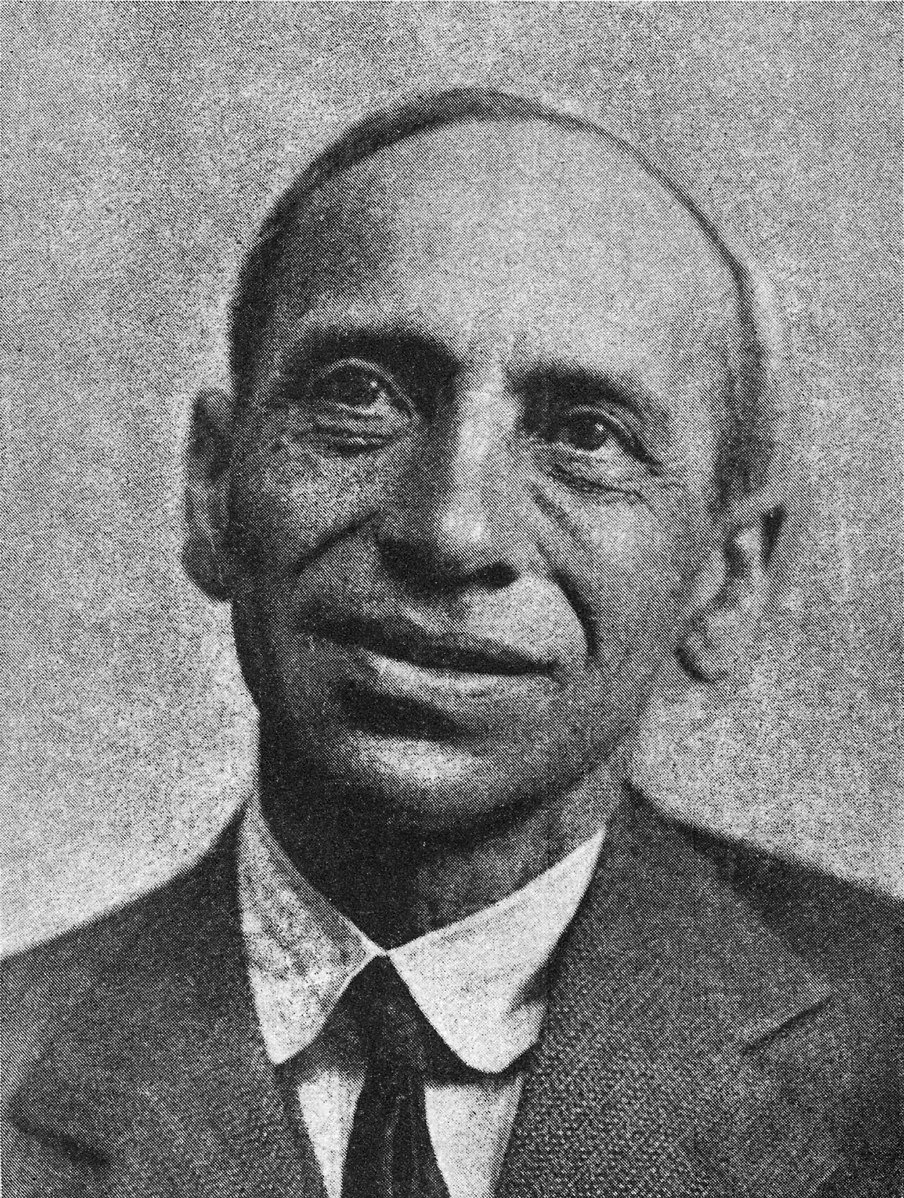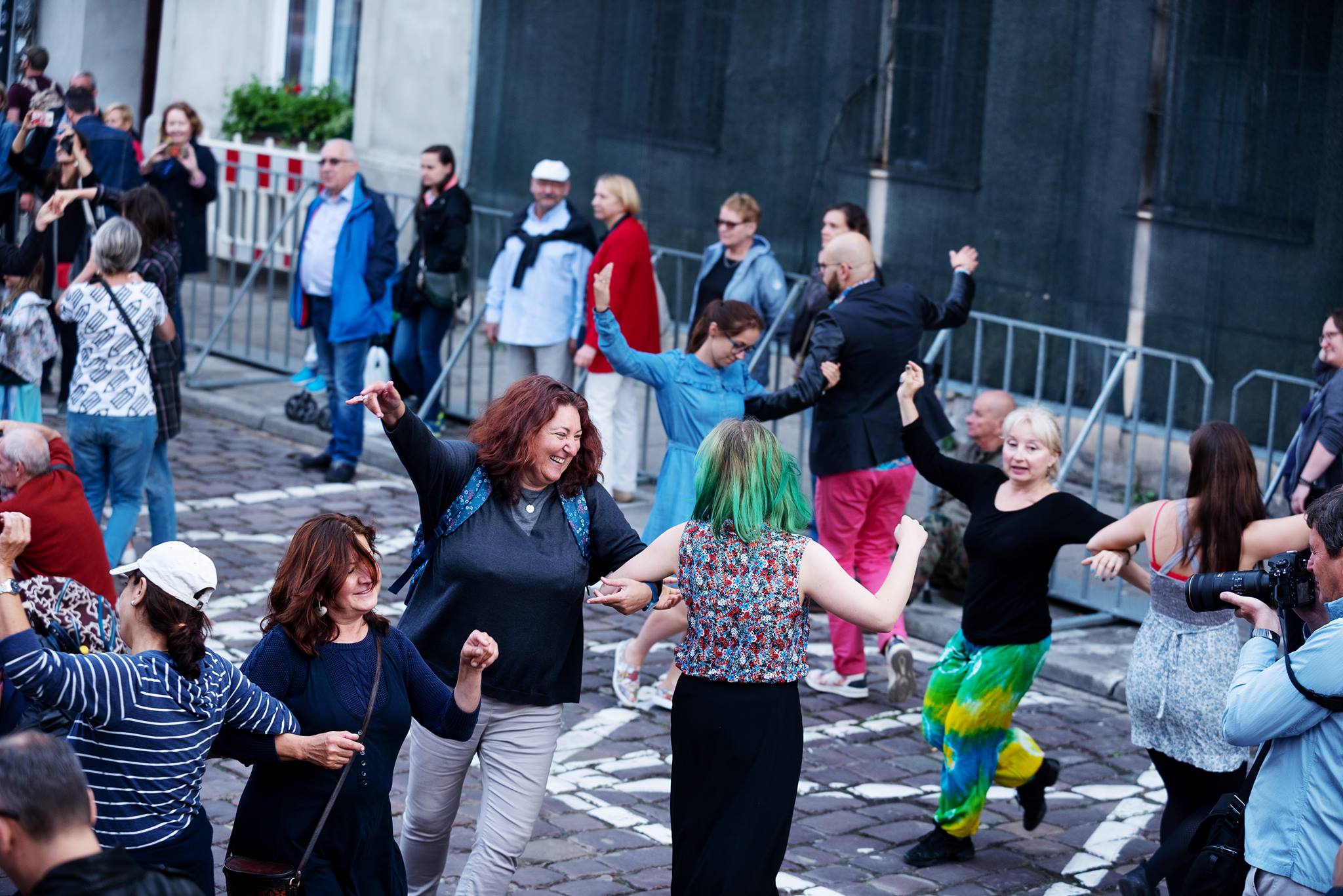Krakow: The Story of Jewish Poland
Krakow is one of the oldest and largest cities in Poland. Since the 7th century it has been the home of some of the greatest academic, artistic, and political minds in Europe. From the time of its establishment, the Jewish community of Krakow has contributed to this status of high culture and innovation. There weren’t always good times to be had for the Jews of Krakow. The community has seen its fair share of discrimination and hardship. Today, however, Jewish culture has seen an uproar of appreciation and commemoration.

Prosperity Despite Hardship: The Resilience of Jewish Krakow
The first wave of Jewish immigration came during the early 13th century with Jews traveling along trade routes from Germany to Prague. In 1335, the community established its roots rather quickly in an area of Kazimierz, located just outside of the city walls. This would become the city’s official Jewish quarter, a bustling hub for culture and trade. Jews could own homes and even trade property.
However the good times did not last long. When Jewish life and culture drifted outside the boundaries of the quarter there was an escalation of violence. Blood libels and attacks on Jews in the street became a common occurrence. Finally, in order to protect Jewish subjects from attacks, the King deemed that all Jews must reside in the quarter. They were not be allowed to own property outside of its limits and were only able to sell property to non-Jews. Still the community persevered and built several synagogues as well as a mikveh, yeshiva, marketplace and cemetery.
The Holocaust and the Jews of Poland
By 1931, the Jewish community had grown from 2,000 individuals to well over 50,000. After years of legal and religious battles with the city, Krakow had become the epicenter of Jewish life and prosperity in Eastern Europe. They were bankers, merchants, doctors, lawyers, restaurateurs, and were considered to be the best craftsmen in the city. The community managed to grow by an additional 10,000 people when World War II made its way to Poland. In 1939, Germany occupied Krakow and in 1940 began to expel and deport Jews from the city to the countryside. Not long after that the first ghetto was established in Podgorze. Life in the Podgorze Ghetto consisted of sickness, starvation, and back-breaking labor.

In 1943 the ghetto was liquidated and some 2,000 Jews lost their lives in the process. The remaining population was deported to Plaszow, a forced labor camp, or were sent to Auschwitz for immediate extermination. After the war ended in 1945, Jews attempted to return home to Krakow. However, they were met with extreme antisemitism and pogroms. Most elected to leave Poland and by 1990, only a few hundred Jews remained in the city.
Kazimierz: The Jewish Quarter of Krakow
Today the Jewish quarter of Kazimierz remains a physical symbol of Jewish culture and resilience. Some of the original pre-war synagogues still stand in addition to other museums and monuments dedicated to the memory of Jewish Krakow. Kazimierz is also one of the best destinations for food and nightlife with a wide range of bars and restaurants to suit any occasion. The town itself represents such a strong cultural history that it has since been named a UNESCO world heritage site.

Commemorated Jewish Life and History in Poland
Situated inside the town of Kazimierz is the New Jewish Cemetery. The land for the necropolis was purchased in 1800 from the Augustinians. More land was eventually added to the cemetery acquired from the Christian monks in 1836. When the Nazis invaded Poland, they desecrated the cemetery by removing and selling the headstones to local masons. One portion of the cemetery was entirely removed so that the land could be used to build the Plaszow work camp. This was later converted into a concentration camp. Today, the cemetery is considered a heritage site. There are estimated to be nearly 10,000 graves in the cemetery.
Holocaust preservation is a crucial piece of Krakow historic sites. The Oskar Schindler’s Factory Museum tells the story of one man who risked his life to save thousands of Jews. The factory became a safe haven for Jews. Schindler even paid off Nazi guards to keep his workers at the factory, saving them from certain death. He is the only member of the Nazi party to be granted the title of “righteous among the nations.”

Intellectuals and the Artists: A Jewish Legacy of Krakow
The devastation of the Holocaust cost the Jewish community of Poland some of their most famous artists, poets, and intellectuals. One of these individuals who perished in the Holocaust was considered to be one of the greatest Jewish poets in Krakow’s history. Mordechaj Gebirtig composed his songs, plays, and poems in Yiddish. Some of his most memorable tunes are still sung by Yiddish speakers today. Classics such as Es brent, Reyzele, Moyshele Mayn Fraynd, and Kinder Yorn.

However, the memory of Jewish life doesn’t always surround the Holocaust. There were plenty of influential Jewish figures in Krakow’s history that led a life of peaceful intellectual development. One such man was Rabbi Moses Ben Isserles. The rabbi lived and taught Torah in Krakow, but his name became immortalized for his commentaries on the Shulkhan Aruch. This would become one of Judaism’s most prominent legal and kabbalistic texts.
The Resurgence of Jewish Culture in Krakow
Although the Jewish community of Poland has seen devastation, today the culture and history is finding new avenues of representation. There is an abundance of festivals and restaurants that celebrates one of the city’s most historic communities. Be sure to check out the Krakow Jewish Culture Festival for all the latest and greatest additions to the rich world of Jewish culture in Poland.


